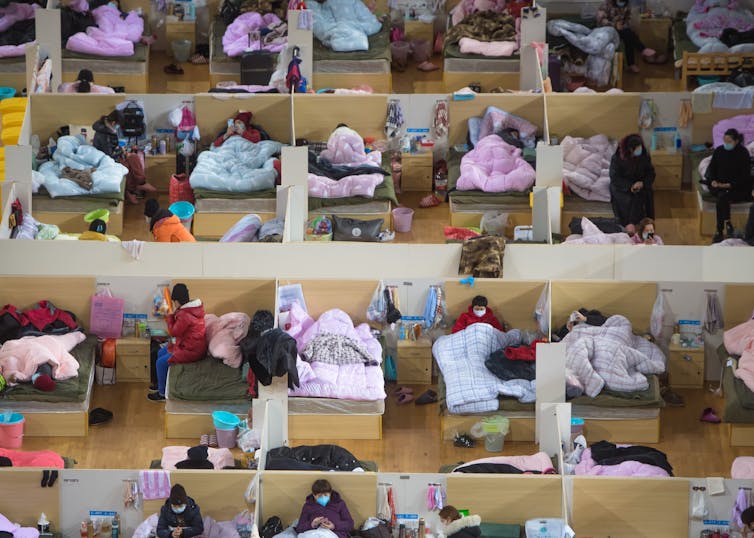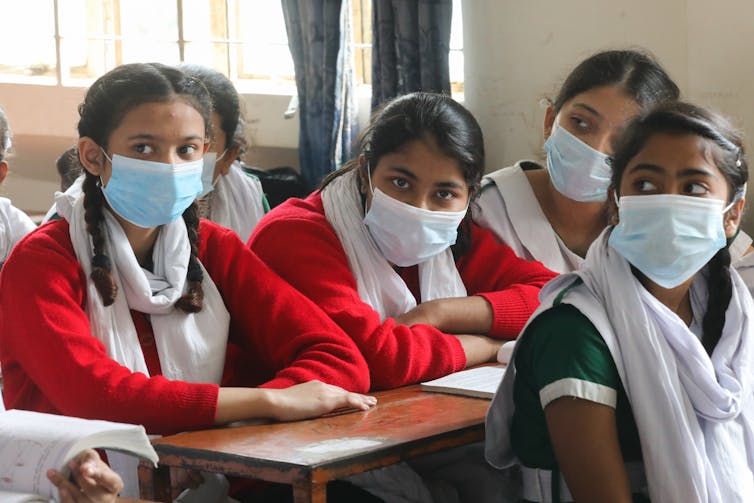You may sometimes have felt like you “have come down with a virus,” meaning that you became sick from being exposed to something that could have been a virus. In fact, you have a virus – actually, many – all the time. Some viruses cause the common cold, and some are crucial to human survival. New viruses can also emerge, and they typically create illness in humans when they have very recently jumped from another species to humans. As world health leaders try to determine how to respond to the new coronavirus, virus expert Marilyn J. Roossinck answers a few questions.

1. What is a virus?
Defining a virus has been a challenge because every time we come up with a good definition someone discovers a virus that breaks the rules. Viruses are entities that infect cellular life. They are very diverse. The simplest just have a couple of genes made of RNA or DNA wrapped up in a protein coat. Others have hundreds of genes, more than some bacteria.
All viruses are ultimately parasites. They require a host for replication. They cannot generate their own energy like cells can.
2. Why does a virus make people sick?
When a new human virus disease appears, it is most often because the virus has jumped from a different species into humans. The worst viruses are often the ones that have very recently jumped into the species.
After jumping species, the virus goes through a process of adjustment to its new host. The real challenge, however, is to the host. As it tries to figure out how to adjust to an invasion from something completely new, the immune system overreacts. This is what makes the host sick. It usually isn’t an advantage for the virus to make people sick; it is an accident of the hosts’ immune system overreacting to something it doesn’t recognize.
From our partners:
Viruses that have been in a host for a long time are less likely to cause disease. For example, HIV jumped into humans from wild primates, in whose bodies it wasn’t causing any disease.
Every virus-host relationship is different. In most cases, viruses do not cause any disease, and many are beneficial. For example, in mice a herpes virus prevents infection from the plague bacteria.
3. Why is it so important to know the original source?
If the virus comes from an animal, knowing what that animal is can help break the chain of infection. Knowing the source also helps scientists understand mutations that might have occurred in the virus’ genome. That’s because host-jumping affects the variation in a virus genome. When a virus has been in its host for a long time, the genome is fine-tuned to that host, and mutations are not tolerated.

4. SARS was a formidable foe, and then seemed to disappear. Why?
Measures to contain SARS started early, and they were very successful. The key is to stop the chain of transmission by isolating infected individuals. SARS had a short incubation period; people generally showed symptoms in two to seven days. There were no documented cases of anyone being a source of SARS without showing symptoms.
Stopping the chain of transmission is much more difficult when the incubation time is much longer, or when some people don’t get symptoms at all. This may be the case with the virus causing CoVID-19, so stopping it may take more time.
5. What is the best way to treat viruses?
Viruses don’t respond to antibiotics, and in some cases taking antibiotics can make things worse, because the normal bacteria in the gut are an important part of the immune response. Antiviral drugs can work with some viruses, but the mutation rate of most viruses means that they become resistant to antivirals very quickly.
The best treatment is to give the patient the best tools to allow their own body to fight off the infection. This usually means rest and keeping hydrated. Virus infection can suppress the immune system, so patients should be monitored for secondary infections that might require other treatments. Prevention is important. Sick people need to be isolated, and healthy people need to take precautions.
Most respiratory viruses are not transmitted just by breathing them in from sick people, but by getting them on your hands from tiny droplets that sick people distribute by coughing or sneezing, and then touching your face. Good hand-washing is important!
Marilyn J. Roossinck, Professor of Plant Pathology and Environmental Microbiology, Pennsylvania State University
This article is republished from The Conversation under a Creative Commons license. Read the original article.













